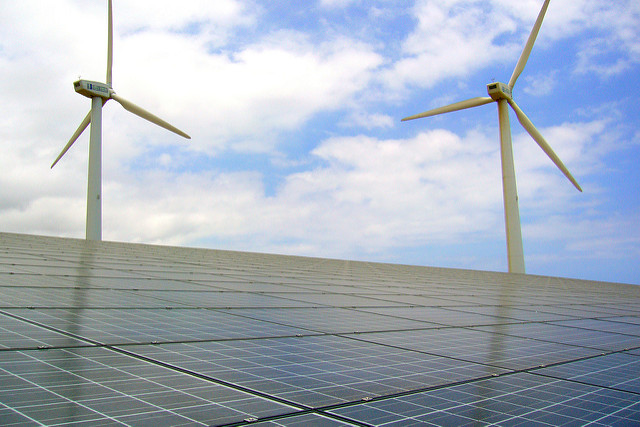The Spanish government is drawing up ambitious new renewable energy legislation.
A draft document with the main points of the new Law on Climatic Change was submitted yesterday to parliamentary groups and interested sectors, by Spain’s Ministry for the Ecological Transition. The government’s goal is to have a text of broad consensus before the legislation’s hearing by the Council of Ministers and the Parliament, to accelerate its progress.
The ministry affirmed the draft addresses energy networks, energy efficiency, building, transport and taxation, and that at least 20% of the national budget should have a positive impact on the fight against change climate.
According to Spanish agency EFE, sources at the Ministry for the Ecological Transition made the information public yesterday, in a meeting with journalists.
The key points
The 15 key measures in the document, according to EFE, are as follows.
Reduce greenhouse gas emissions by 20% of their 1990 levels in 2030, and by 90% in 2050.
Electricity to come solely from renewable energy in 2050.
The government to promote the installation of at least 3 GW of renewable energy capacity per year from 2020 to 2030.
New exploration authorizations and concessions for the exploitation of hydrocarbons will no longer be granted once the law comes into force.
No new fracking licences, and current licenses will not continue beyond 2040.
No new subsidies or economic incentives that could favor the consumption of fossil fuels.
The public sector to divest from companies that develop fossil fuel-related activity.
In 2050, no passenger or light commercial vehicle will circulate if it emits carbon dioxide directly.
In 2040, the registration and sale in Spain of vehicles that emit CO2 will no longer be allowed; including hybrids, natural gas (CNG) and liquefied petroleum gas (LPG) vehicles, as well as petrol and diesel.
An obligation to install electric charging stations in all fossil fuel supply stations.
All municipalities with more than 50,000 inhabitants to have low emission zones in 2023.
The government to promote the renovation of public and private buildings to achieve high energy efficiency and decarbonized buildings by 2050.
An average of at least 100,000 homes a year, from 2021-30, to be refurbished to meet energy efficiency criteria.
Twenty per cent of the state budget to have a positive impact on the fight against climate change.
The law will be accompanied by a transition strategy to alleviate its effects on territories and workers most affected by the transition.
‘A wake-up call’
James Watson, CEO of European solar association SolarPower Europe, told pv magazine: “It is exciting to see Spain setting the pace in its commitment to a 100% renewable-powered future. Spain’s energy ambition is a wake-up call to all the other states across the world, as it demonstrates what we know – it is possible to power large economies by renewables in the very near future.
“Solar will play a major role in delivering this target and the Spanish government is offering solar companies the opportunity to grow their market leadership, while also providing economic solutions for declining coal regions, through new employment in the clean energy sector. This will ensure that the transition is socially considerate, and that no communities get left behind. We fully commend the Spanish government on its clean energy leadership.”
This content is protected by copyright and may not be reused. If you want to cooperate with us and would like to reuse some of our content, please contact: editors@pv-magazine.com.



Good to see some movement in the right direction but the targets are taking too long to hit. Are politicians utterly unaware of impending climate change threats ? Spain can hit 100% renewables much sooner if there was any political will to do so. And 100% renewable electricity in Europe is easily achievable by 2030 if we manage demand properly and integrate the European electricity grid. If this is done there is not that much storage capacity that needs to be built up. It is not a technology challenge. Only a political one.